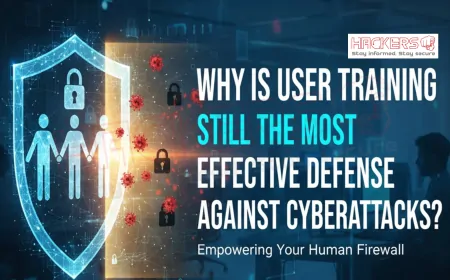What Role Do Privacy Laws Play in the Age of Social Media and Big Data?
Every time you post a photo on social media, shop online, or even browse the web, you’re generating data—lots of it. Social media platforms and big data technologies collect everything from your likes and searches to your location and shopping habits, creating detailed profiles about you. While this fuels personalized ads and better services, it also raises a big question: who’s protecting your personal information? That’s where privacy laws come in. These laws set rules for how companies handle your data, aiming to keep it safe from misuse or breaches (when hackers steal data). In an era where social media and big data dominate our lives, privacy laws are more crucial than ever. Whether you’re a casual user or a business navigating this digital age, this blog explains the role of privacy laws in simple terms. We’ll explore how they work, their challenges, and what they mean for you in the world of social media and big data. Let’s dive in!

Table of Contents
- What Are Privacy Laws?
- How Social Media and Big Data Use Your Information
- The Role of Privacy Laws
- Key Privacy Laws Around the World
- Comparing Privacy Laws Globally
- Challenges in Enforcing Privacy Laws
- Conclusion
- Frequently Asked Questions (FAQs)
What Are Privacy Laws?
Privacy laws are regulations that govern how companies, governments, and others collect, use, store, and share personal information. Personal information includes things like your name, email, location, or browsing history—data you share when using social media or online services. These laws aim to protect your privacy by ensuring this data is handled responsibly, securely, and with your consent. They also set rules for what happens if data is stolen in a breach or misused, like being sold without permission. Examples include requiring companies to use encryption (scrambling data so only authorized people can read it) or notify you if your data is compromised. In the age of social media and big data, where vast amounts of information are collected, privacy laws are essential to keep your personal details safe.
For you, this means control over your data. For companies, it’s about following rules to avoid fines and build trust with users.
How Social Media and Big Data Use Your Information
Social media platforms like Instagram or X and big data technologies collect and analyze massive amounts of data to provide services and make money. Here’s how they use your information:
- Personalized Content: Platforms track your likes, comments, and searches to show tailored posts, ads, or recommendations.
- Advertising: Companies use your data—like age, location, or interests—to target ads, their main revenue source.
- Behavioral Analysis: Big data tools analyze your online behavior to predict trends, like what products you might buy.
- Location Tracking: Apps collect your location to offer features like nearby events or targeted local ads.
- Data Sharing: Platforms may share your data with third parties, like advertisers or partners, often without clear consent.
While these practices improve user experience, they also risk exposing your data to misuse or breaches, making privacy laws critical.
The Role of Privacy Laws
Privacy laws play a vital role in regulating how social media and big data handle your information. Here’s what they do:
- Ensure Consent: Laws require companies to get your permission before collecting or using your data, often through clear privacy policies.
- Protect Data: They mandate security measures like encryption or secure storage to prevent hacks and data breaches.
- Grant User Rights: You can access, delete, or restrict how your data is used, giving you more control.
- Mandate Breach Notifications: Companies must inform you and authorities if your data is stolen, helping you act quickly.
- Impose Penalties: Non-compliant companies face fines, encouraging them to prioritize your privacy.
These laws empower you to manage your data while ensuring companies act responsibly in the fast-paced world of social media and big data.
Key Privacy Laws Around the World
Different countries have their own privacy laws, each with unique focuses. Here are the major ones:
- General Data Protection Regulation (GDPR): The EU’s law requires consent, data protection, and breach reporting within 72 hours. Fines can reach €20 million or 4% of global revenue.
- California Consumer Privacy Act (CCPA): A U.S. law giving California residents rights to access, delete, or opt out of data sales. Fines can be up to $7,500 per violation.
- Digital Personal Data Protection Act (DPDPA): India’s 2023 law protects personal data, requiring consent and applying to foreign companies in India.
- Personal Information Protection Law (PIPL): China’s law mandates data localization (storing data locally) and strict consent rules, with hefty fines for violations.
- Privacy Act 1988: Australia’s law governs data handling, requiring security measures and breach notifications, with penalties up to AUD 2.5 million.
These laws set global standards, but their differences create challenges for companies operating across borders.
Comparing Privacy Laws Globally
Privacy laws vary in focus, scope, and penalties. Here’s a comparison to highlight differences:
| Law | Region | Focus | Key Requirement | Penalty |
|---|---|---|---|---|
| GDPR | EU | User privacy | Consent, 72-hour breach report | €20M or 4% revenue |
| CCPA | USA (CA) | Consumer rights | Opt-out, data access | $7,500 per violation |
| DPDPA | India | Data protection | Consent, breach reporting | Up to ₹250 crore |
| PIPL | China | State control | Data localization, consent | Up to ¥50M |
| Privacy Act | Australia | Data handling | Security, notifications | AUD 2.5M |
GDPR and CCPA focus on user rights, DPDPA balances privacy and enforcement, PIPL emphasizes control, and Australia’s law targets secure data handling.
Challenges in Enforcing Privacy Laws
Enforcing privacy laws in the age of social media and big data is tough. Here are the main challenges:
- Global Operations: Social media companies operate worldwide, but differing laws (e.g., GDPR vs. PIPL) create compliance conflicts.
- Data Volume: Big data involves massive datasets, making it hard to track and secure every piece of information.
- Evolving Technology: New tools like AI or tracking algorithms outpace laws, creating gaps in protection.
- User Awareness: Many users don’t understand privacy policies, limiting their ability to exercise rights like opting out.
- Enforcement Resources: Regulators often lack the staff or technology to monitor global platforms effectively.
These challenges make it hard to ensure privacy laws keep your data safe in the fast-moving world of social media and big data.
Conclusion
In the age of social media and big data, privacy laws are the guardians of your personal information, ensuring companies handle it responsibly and securely. Laws like GDPR, CCPA, and India’s DPDPA empower users with rights to control their data, mandate security measures, and penalize misuse, protecting you from breaches and exploitation. However, challenges like global differences, massive data volumes, and evolving technology test these laws’ effectiveness. For users, understanding your rights helps you stay safe online; for companies, compliance builds trust and avoids fines. As social media and big data continue to shape our lives, privacy laws must evolve to keep up, ensuring a balance between innovation and protection in this connected world.
Frequently Asked Questions (FAQs)
What are privacy laws?
They’re rules governing how companies collect, use, and protect personal data, ensuring your privacy online.
How do social media platforms use my data?
They track your likes, searches, and location to personalize content, target ads, or share with third parties.
What is a data breach?
It’s when hackers steal your personal information, like names or credit card details, without permission.
What is GDPR?
The EU’s General Data Protection Regulation requires consent and breach reporting, with fines up to €20 million.
What is the CCPA?
California’s law gives residents rights to access, delete, or opt out of data sales, with fines up to $7,500.
What is India’s DPDPA?
The Digital Personal Data Protection Act protects personal data, requiring consent and breach reporting.
What is China’s PIPL?
It mandates data localization and strict consent, with fines up to ¥50 million for violations.
What is encryption?
Encryption scrambles data so only authorized users can read it, a key privacy law requirement.
Why do privacy laws differ globally?
Countries prioritize different goals, like user rights in the EU or state control in China.
How do privacy laws protect me?
They ensure consent, secure data, grant rights to access or delete data, and mandate breach notifications.
What is big data?
It’s the massive collection and analysis of data, like your online behavior, to predict trends or personalize services.
Can I control my data on social media?
Yes, laws like GDPR and CCPA let you access, delete, or restrict how your data is used.
What happens if a company violates privacy laws?
They face fines, lawsuits, and reputational damage for failing to protect your data.
Why are privacy laws hard to enforce?
Global operations, massive data volumes, and evolving tech make it tough for regulators to keep up.
What is a privacy policy?
It’s a document explaining how a company collects, uses, and protects your data, required by law.
How does big data affect privacy?
It collects vast amounts of personal information, increasing risks of misuse or breaches without strong laws.
Can small businesses comply with privacy laws?
Yes, but costs and complex rules can be challenging, especially for global compliance.
What is data localization?
It’s a rule requiring companies to store data in the country where it’s collected, like in China’s PIPL.
How do I know if my data was breached?
Privacy laws require companies to notify you if your data is stolen, often within days.
How can I stay safe online?
Read privacy policies, use strong passwords, and exercise your rights to control your data.
What's Your Reaction?










































































